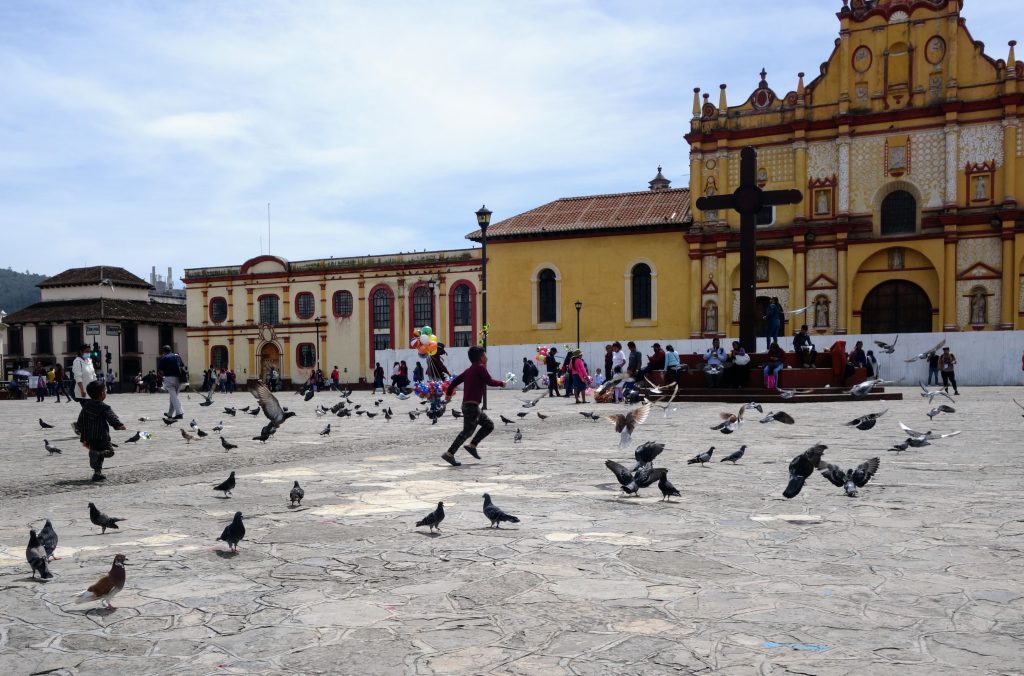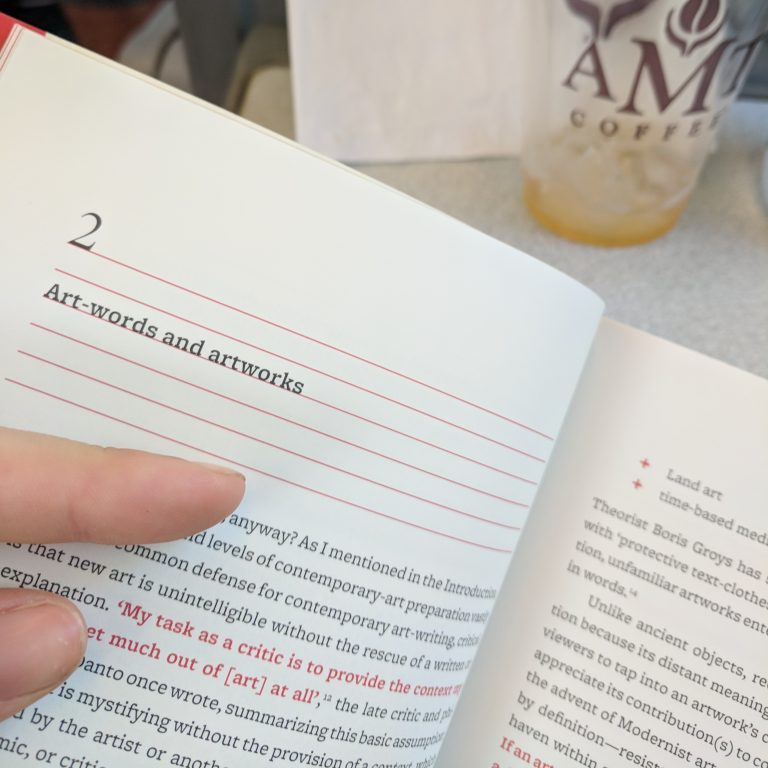Author: 24036886
-
Runes and glyphs: Notes on my materials exchange project
by
in Unit 2This term, we’re doing a materials exchange – a round robin of packages with gifts intended to inspire a creative response. I received items from Georgie: a book on Runes by Ralph Blum and a red cloth bag carrying a set of my own – smooth, thumb-sized stones, each etched with a black symbol. In…
-
W14: On my practice – take 2
by
in Unit 2This week I’m returning to thinking about my practice based around these new prompts: Viewed through an intercultural lens, I have both a professional and a personal practice. So the question of how I know when I’m practicing is a difficult one. I’m spending a lot of time at the moment learning Spanish, which feels…
-
W13: On positioning – and disclosure
by
in Unit 2This week has been focused on position and positionality. We talk in open studio about the uncomfortableness of disclosing certain aspects of our identities – of ‘outing’ ourselves, specifically in the context of MAIP. Some things are more uncomfortable to talk about than others. Some feel more personal, are less evident without disclosure and also…
-

W12: On dynamic duos – and pigeons
by
in Unit 2This week we talked about duos, about essentialism, and about Jaques Derrida challenging dichotomies. “Dog is dog because it’s not cat.” Marsha shared this statement, which at first seemed a counterpoint to avoiding dichotomies; a way of understanding the world through distinct categorisation and difference. But it was more a point about how language –…
-
Unit 1: What remains?
by
in Unit 1Strongest memory from U1 – a moment from class that remains in your mind? What readings/materials had the biggest impact on you, do you remember best and why? (Either from the course reading or that you found yourself prompted by the course) Were there any moments that ‘caught’, where you felt friction, felt personally challenged…
-

W11: On my practice
by
in Unit 2This week we received the prompt: Progress your cultural production – your practice – by identifying three to five processes that organise how you work. Blog about these. Discuss what these are, why they’re important and what you’ve been able to accomplish thanks to prioritising them. Work with examples – so ground your reflections in…
-
Reflections on ‘entrance interviews’
by
in Unit 1During unit 1, we were put into pairs and tasked with conducting ‘entrance interviews’ of each other, capturing this moment in time as we’re each beginning MAIP. I was paired with Makhasiri Khanoei, an artist and architect from Thailand currently living and working in Singapore. Makhasiri and I met over video call to chat about…
-
U1 submission
by
in Unit 1Our Unit 1 assignment was to make a video that shares our context and what makes it complex and connected. The process of making my video was personally therapeutic. My life has changed significantly in the past few years and part of why I wanted to do this course was to give myself time and…
-
Week 5: On feedback
by
in Unit 1We’ve spent this week examining structures for giving and receiving feedback. Including Liz Lerman’s Critical Response ProcessSM, the DAS Graduate School (2013) A Film About Feedback, along with theories of non-violent communication developed by psychologist Marshall Rosenberg. The readings and film have led me to reflect on situations in my work when I’ve been giving…
-
Week 4: On the presentation of self
by
in Unit 1“…everyone is always and everywhere, more or less consciously, playing a role… It is in these roles that we know each other; it is in these roles that we know ourselves.” Goffman, E. (1959). The presentation of self in everyday life. Anchor Books. This week, ahead of our session on interviewing, we were tasked with…